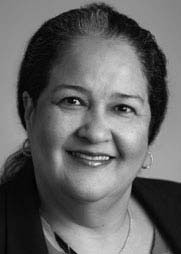Similar to many of my colleagues in medicine, I see firsthand how vitally important access to affordable medication is for patients battling autoimmune diseases, such as rheumatoid arthritis and lupus.
Many of my patients rely on costly biologic therapies to manage their conditions and maintain their quality of life. Yet, an essential federal program designed to help vulnerable patients afford their medications — the 340B Drug Pricing Program — is failing to meet its mission.
The 340B drug discount program was created with a noble intent – to ensure that underserved, low-income and uninsured patients receive the medications they need at little to no cost. Hospitals, clinics and other “covered entities” across the country can do this by purchasing outpatient medications at significantly discounted prices from drug manufacturers.
This was a wellintentioned policy that aimed for cost savings to be passed down to those who need them most.
Unfortunately, the system isn’t working, and it continues to stray from its original intent. The program has been increasingly leveraged by large hospital systems to boost revenue — often at the expense of independent medical practices and the very patients it was designed to help.
Currently, hospitals and their affiliated contract pharmacies dispense discounted drugs not only to financially vulnerable patients, but also to commercially insured patients. This allows large hospital systems to save when they purchase the medication and then turn a significant profit when they bill for them. In fact, more than half (53%) of pharmacies benefiting from the 340B program and supposedly serving the poor are in affluent neighborhoods in Texas.
Patients are all too often left on the hook for their costly medications while large hospitals reap significant profits. Without urgent reform, independent practices like mine, and the patients we serve, will continue to suffer.
This program is driving greater consolidation and acquisition of medical practices across the country. Many 340B-participating hospitals have used the program’s financial benefits to expand aggressively, acquiring smaller practices and limiting patient choice. This is particularly concerning as the number of physicians working in private practice continues to fall, reduced by 13% over the past decade.
Solo practitioners, like me, who used to be able to survive and provide services to our patients, are now at peril. I don’t know how much longer we’ll be able to serve our communities if we have to compete with the financial windfall of large 340B hospitals.
When independent rheumatologists are forced to close or merge with hospital systems, it reduces competition and ultimately drives up healthcare costs. It also drives patients to more expensive care settings.
In fact, the average reimbursement for drug administration services is up to 200% higher in hospital outpatient departments than in physician offices. In Texas, where access to specialized care is already a challenge for many rural and underserved communities, this trend is deeply concerning.
The lack of transparency in this program has unintentionally provided cover for large hospital systems as they game the system. Current legislative proposals, like HB 3265, would actually embolden large hospital systems while simultaneously failing to ensure guardrails that protect patient access to affordable medications and services.
Instead, Texans deserve common sense reforms, including transparency requirements, to hold 340B-covered entities accountable for how they use program savings. These reforms also need to incorporate safeguards that prevent large health systems from using the program to fuel unchecked consolidation that disadvantages independent practices and their patients.
We need to restore the integrity of the 340B program and ensure it serves its intended purpose. It is time for policymakers to reform the 340B program so it truly benefits those it was designed to help.
Leyka Barbosa, MD, FACR is the Medical Director of North Texas Joint Care, PA in Dallas, Texas and a board member of the Coalition of State Rheumatology Organizations.





